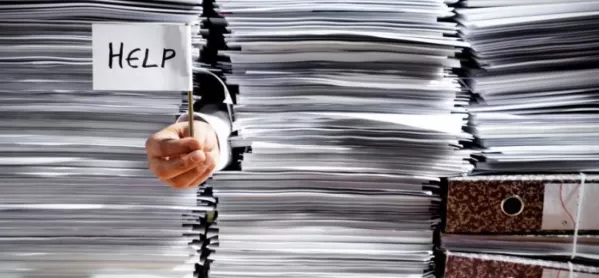I’m doing less at school this year.
This may be a tall order for some, probably most, of us.
Education as a whole, most definitely including early years, is full of people who have problems saying no.
Quick read: Why high expectations can mean lower workload
Quick listen: The problem with whole-school behaviour policies
Want to know more? Why one teacher no longer sits her students in rows
There is a widespread and unhelpful kind of masochistic pride about how hard we all work.
I do get it; by all means we should be proud of managing to still teach in spite of the system we’re in, but I am done with just surviving, settling and “getting on.”
I am either going to start creating a space for my personal vision for early years care and education or I am going to get out of the field.
I imagine you have your own hopes about how you would like to work, and in 2020 it’s time we help each other make these hopes more tangible.
1. Ask the right questions
Changing the way we work is a daunting task. Since it seems most of us are very new to to this, let’s start with some low-hanging fruit.
What are one or two small things you do at work even though you know they aren’t benefiting the children’s learning or the development of your skills as an educator? Why do you do them? Is it “for Ofsted?” (Has anyone checked if Ofsted actually wants it?)
What is stopping you from taking them off your already full plate? What steps would it take to stop doing them? Have you talked to your co-workers? What do they think? Are they willing to make the case with you?
If you have a manager or leader to convince, do you have a good argument and/or alternative suggestion? What will help you manage the possible fear or stress long enough to “go for it”?
And, crucially, what could you do with this freed-up time and energy?
2. Argue the point
If something we’re doing isn’t improving the quality of the learning and teaching taking place, it deserves debate.
I choose such strong language because educators need to start taking their time, energy and emotional reserves seriously. We should ruthlessly hoard them like a dragon sitting on piles of gold and treasure. Where our time, energy and emotional reserves go is a zero-sum game.
Time spent on an assessment tracker is time not spent helping the children. Energy spent laminating things that don’t last a term is energy not spent on the children.
Emotional reserves spent meeting a weekly quota of observations are emotional reserves unavailable for the children.
Good teaching depends on emotional attunement. Our ability to be aware of the states and needs of the children in our room spends our emotional reserves as well.
3. Be realistic
Obviously we can’t save 100 per cent of ourselves solely for the children at all times but we do need to recognise that we are only human and we only have so much we can give each day. Staff being spread too thinly equals poorer quality teaching and learning.
Working out what is worth our focus will depend on our personal opinion, values and context, but it is our right as supposed professionals to make our case with our colleagues and our leaders and have a real say.
No policy can have everyone in a setting perfectly happy all the time, but what actually matters here is staff knowing they have agency and a real voice.
I, like everyone reading this, remain willing to work hard, I just resolve in 2020 to learn how to demand more say over how I do it. Please join me!
David Cahn is the author of Umar, a children’s book about a young boy fascinated with keys and determined to learn how to use them





